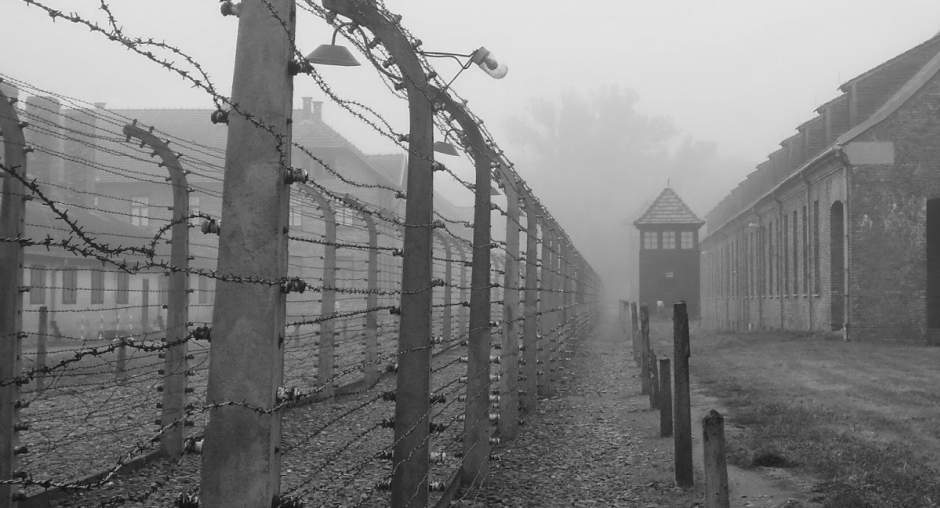



| Tuesday, 27 January 2015. | |
| Efforts to counter anti-Semitism and all forms of intolerance crucial as ever, says OSCE on 70th anniversary of Auschwitz liberation | |
| + larger fontnormal font- Smaller font |
 As people across the OSCE region today commemorated the 70th anniversary of the liberation of Auschwitz-Birkenau, OSCE officials highlighted the importance for societies to stand firmly against the contemporary challenges of anti-Semitism, racism and other forms of intolerance. As people across the OSCE region today commemorated the 70th anniversary of the liberation of Auschwitz-Birkenau, OSCE officials highlighted the importance for societies to stand firmly against the contemporary challenges of anti-Semitism, racism and other forms of intolerance."This anniversary is a unique opportunity for societies across the OSCE region to commemorate the victims of the Holocaust and pay tribute to survivors and rescuers," said the OSCE Chairperson-in-Office, Serbian Foreign Minister Ivica Dačić. "As the OSCE Chair, Serbia is committed to maintaining the Organization's status as one of the leaders in combating anti-Semitism, resolved to preserve remembrance of the Holocaust." "We call on OSCE participating States to support the valuable work done by educators and civil society to make sure that young people have the opportunity to learn about this atrocity," Dačić added. "Lessons learnt from the past must help us overcome prejudice and avoid such catastrophes in the future, as well as to enhance stability, security and social well-being, both within individual societies and in relations among states," concluded the OSCE Chairperson-in-Office. At the Auschwitz-Birkenau Museum to attend the memorial event there today, Michael Georg Link, Director of the OSCE Office for Democratic Institutions and Human Rights (ODIHR), stressed the importance of this year's anniversary and commemoration. "By gathering here today, 70 years after the liberation of Auschwitz-Birkenau, and meeting with survivors, we demonstrate the importance of remembering the victims of the Holocaust and the nature of this hideous crime," Link said. "This event only underscores the need to address contemporary forms of anti-Semitism. The Holocaust, the persecution of the Roma and Sinti and the murders of the countless other victims of the Nazi regime are powerful reminders of the danger intolerance, discrimination and hatred pose to us all." Complementing commemorative events, ODIHR published information on how participating States promote Holocaust remembrance and education in the report "Holocaust Memorial Days: An overview of remembrance and education in the OSCE region." ODIHR has also actively promoted recognition, education and commemoration of the Roma and Sinti genocide. A report dedicated to current practices will soon be available. ODIHR co-operates with the International Holocaust Remembrance Alliance (IHRA) to raise awareness about the Holocaust and facilitate the exchange of good practices between experts from different countries. This co-operation is inspired by OSCE commitments and the Stockholm Declaration on the Holocaust, reaffirmed by IHRA on 27 January 2015 (http://www.holocaustremembrance.com/media-room/stories/reaffirmation-action). "Sadly, even while elderly survivors and eyewitnesses will take note of this 70th anniversary commemoration, we see growing numbers of European Jews feeling anxious and uncertain about their future," said Rabbi Andrew Baker, the Personal Representative of the OSCE Chairperson-in-Office on Combating Anti-Semitism. "Our remembrance must also be accompanied by action to combat the resurgence of anti-Semitism." At the OSCE Permanent Council session held on 22 January, which was dedicated to commemorating the International Holocaust Remembrance Day, speakers Sir Andrew Burns, Chair of the IHRA, and Ambassador Roksanda Ninčić, State Secretary of the Ministry of Foreign Affairs of the Republic of Serbia and the Head of the Serbian Delegation to the IHRA, also stressed the need for incorporating lessons of the past into the education of future generations. Photo by:OSCE/Hans Felber-Charbonneau |